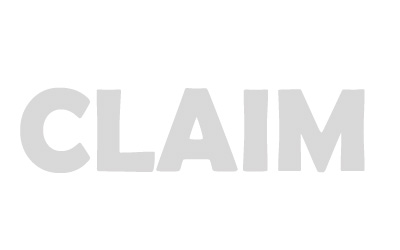

Common Core is not a federal program
In 2009, US Secretary of Education Arne Duncan said, “I want to begin this morning by talking about the historic opportunity we have today. We will never have a chance like this again. We have a president who is passionate about public education…. And thanks to the Recovery Act, we also have some money, and money does matter. Over $100 billion in new resources is coming to education… And the Recovery Act focuses on four broad areas of reform… We're focused on college– and career–ready internationally benchmarked standards… And finally, we need robust data systems to track student achievement and teacher effectiveness.” source

The Federal Government incentivized adoption of the Common Core standards as part of the
Race to the Top (RTTT) grants, funded with the 2009 Stimulus money. Originally proposed as
a requirement for RTTT money, the states who adopted Common Core standards received
extra points toward their application. source
In order to apply for the current federal No Child Left Behind (NCLB) waivers, states need to agree to adopt college- and career-ready standards “that are common to a significant number of states” (Common Core) and administer annual, statewide, aligned tests. source
In trying to dispel the “myth” that the Feds are involved in Common Core, the official website admits that the Feds didn’t develop the standards, but they can use federal money and legislation to “assist” states in adopting and implementing these standards. Source Website has since changed: Wayback machine has this archived copy: source
We may think that without Congressional legislation requiring the standards, there is no Federal involvement. In fact, the Federal Department of Education is prevented, by federal law, from control or direction over curriculum or textbooks/materials. (See US Department of Education Organizing Act, 1979) So, they simply paid others to do what they couldn’t do themselves.

It was developed by the state governors; it's really a grassroots, state initiative.

The National Governor's Association provides the appearance of a state-led initiative. However, those fifty governors didn't create the standards. Big names and big money in the education establishment have been pushing for this type of national, not federal, standards for nearly twenty years. The governors' signing on just gave legitimacy to their efforts.
The Governors’ Association and the CCSSO, who are attributed with creating the standards, received, along with fellow collaborator, the National Center on Education and the Economy (NCEE) nearly $30M in grants to develop and implement the Common Core standards.
CCSSO: 2009--$9,961,842, 2009-- $3,185,750, 2010--$743,331, 2011--$9,388,91
NGA Center: 2008--$2,496,814, NCEE: 2009--$1,500,000
Also involved in funding the CCSSO are the College Board (think SAT), ACT, Pearson Publishing, McGraw-Hill, and other interested, educationally-invested, stand-to-gain from being on the frontline of this entities. source
The CEO of NCEE, Marc Tucker, has been involved in pushing and creating a system of national standards since 1992 with the advent of his “Dear Hillary” letter. The “Dear Hillary” letter says, “At the narrowest level, the agenda cannot be moved unless there is agreement among the governors, the President and the Congress. " source


It does not determine assessments (testing).
However, assessments mean measuring “knowledge, skills, attitudes, and beliefs” not just facts. source
His organization developed the pre-cursor to Common Core in the form of the New Standards Project. Many of the leaders in the New Standards work went on to play leading roles in the development of the Common Core State Standards, which built in part on the foundation laid by New Standards. Source
The US Department of Ed is funding the assessments/tests via a grant of $330,000,000 from the 2009 stimulus package (source). The Feds are also "encouraging" states to adopt those assessments via RTTT and NCLB Waivers.
The math assessments of the Smarter Balance Assessment Consortium (SBAC) are considered, by one reviewer, to “assess communication skills that have nothing to do with mathematical understanding.” source

Common Core does not determine curriculum.

"To make standards meaningful they have to be integrated with changes in curriculum, assessment and pedagogy [teaching methods]." Dr. Jay P. Greene source
Additional grants from the Federal Government were given to the two consortia writing the tests to assist
states in implementation. source
SBAC is committed to develop “model curriculum and instructional models”. source
Pearson Publishing and McGraw-Hill have been involved on the ground level in this process. They are prepared to provide materials to the schools; whereas, the other providers are still scrambling to rearrange their materials to reflect the Common Core standards. In some cases, districts have had no materials to work with, and in other cases, they may be able to select from two or three vendors. source
McGraw-Hill bought out the GROW organization that creates tests and whose president was part of the group who developed the Common Core standards. Now, they are writing the textbooks and curricula to match. source


It is voluntary. If I make you an offer you can't refuse, is it voluntary?
Revisit the answers to the first claim at the top of the page. Federal dollars become a motivating factor
for cash strapped states.

The standards are more rigorous.
It depends on what state you're in. In Utah, the math standards are rated the same (A-minus) as Common Core, as rated by the Fordham Foundation. Interestingly, the Fordham Foundation received money from the Gates Foundation to develop supports for the Common Core. So, it is entirely possible that the Common Core standards were rated ever, so slightly higher because of that financial incentive. Utah’s English standards are at a C-rating, while Common Core rated a B+ rating. However, 13 states rated B+ or higher, giving Utah many options to choose from. source (page 10)
For those who were hoping to put an end to the so-called Math Wars by an appeal to higher standards, both sides of the debate have Common Core standards-approved curricula: Investigations Math and Saxon Math. Both say they are Common Core aligned. source
The only independent review of the Common Core standards, claims Common Core is not superior to California or Massachusetts standards in English and Math. If we are looking for more rigor, why would we take a middle ground instead of going all the way to the top? source

It will not take away local control..
If the control over the standards, the assessments, the funding, and (if we implement more merit pay) the teachers isn't removing local control, I don't know what is. We need to understand that every expansion of centralized education is done at the expense of local and parental control. How can it be otherwise?
